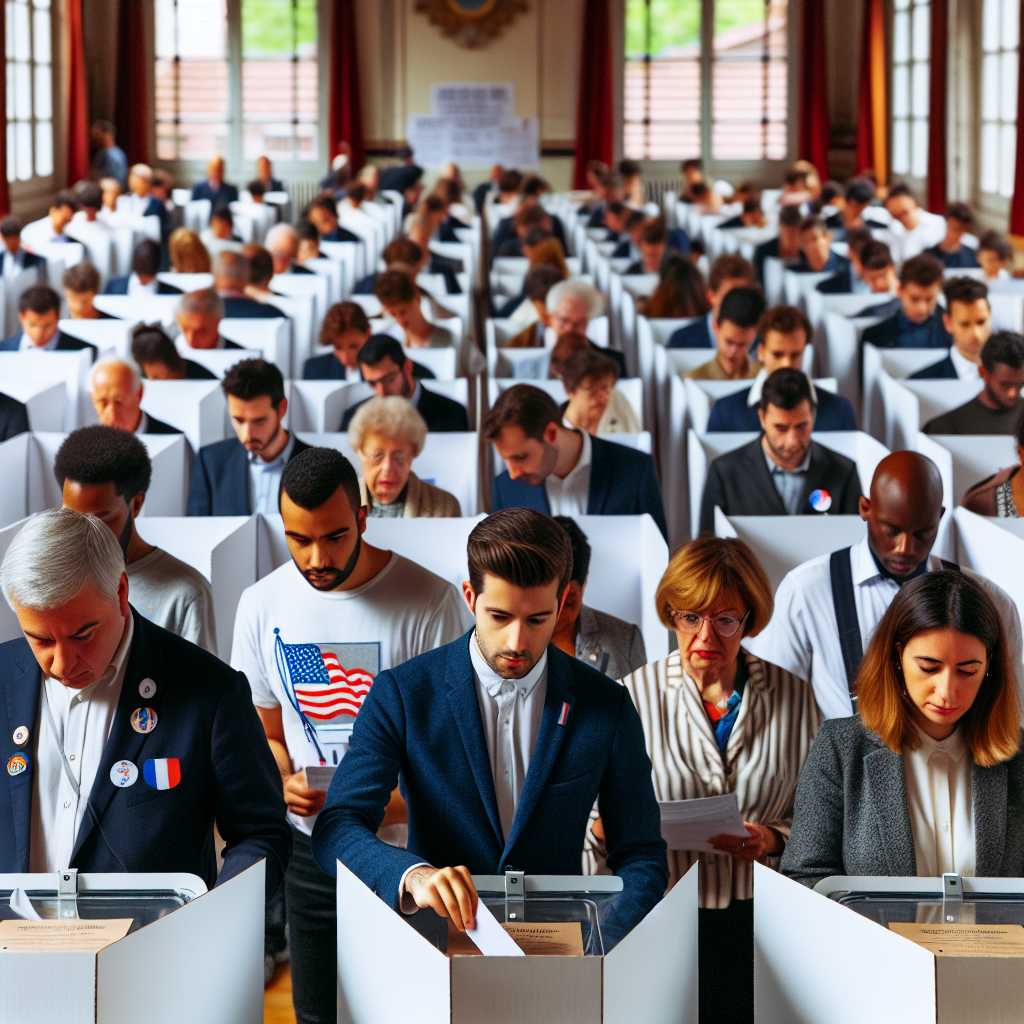An Overview of the French Electoral System and Recent Political Climate
The French Republic’s electoral system plays a crucial role in determining the makeup of its government and directly shapes policy-making capacities at the highest levels. With a semi-presidential system, France elects both a president and members of its parliament, with each having distinct roles and powers. The presidential elections operate on a two-round voting system, designed to ensure that the elected candidate secures a majority of over 50% of the vote. If no single candidate achieves this majority in the first round an, a second round takes place between the top two candidates.
Historical Context and Evolution of French Elections
Historically, France has undergone a significant evolution in terms of its electoral franchise and methods. From a monarchy to a republic, suffrage parameters have expanded from very limited electorates to universal adult suffrage. Currently, all citizens above the age of 18 are eligible to vote in both parliamentary and presidential elections, a right enshrined after the introduction of the Fifth Republic in 1958. History also reveals fluctuations between periods characterized by political stability, dominated by certain parties or coalitions, and times of volatility with shifting political allegiances.
The French Presidential Election Cycle and Procedure
French presidential elections occur every five years. As previously mentioned, they use a run-off system designed to duke broad support for elected leaders. This method addresses concerns about small plurality votes unrepresentative of majority support in a multiparty system. Candidates must receive signatures from elected officials across France to stand for election, ensuring broad geographic representation among Presidential nominees.
Parliamentary Elections and Governance
Soon after presidential elections, France holds legislative elections to elect members of the National Assembly. These determine which party or coalition will control this key legislative body, with significant implications for governance, particularly concerning domestic policies. Parliamentary majorities can greatly enable or hinder presidential agendas.
Recent Political Trends and Election Outcomes
In recent decades, France’s political landscape featured predominant parties such as the Socialists (Parti Socialiste) and traditional center-right parties. Regional elections have also indicated growing fragmentation and polarization within French electoral politics, creating monumental shifts that alter perspectives on both national and local issues.
Impact Of Elections on Domestic & International Policies
Political shifts revealed through French elections have substantive ramifikations beyond identifying national leaders. Domestic policies regarding labor laws, immigration, education reforms, environmental measures, and healthcare are profoundly affected by these changes. Internationally, France’s foreign policy spectrum from European Union integration to relations with global partners is shaped through electoral outcomes, particularly presidential.
France’s Electoral Integrity and Challenges
Despite France’s robust democratic traditions, contemporary challenges like claims of media bias, political disinformation (especially via social media), security threats during election times have raised concerns around electoral integrity. Data privacy laws and cybersecurity play increasingly pivotal roles in preserving fair election processes.
Notes
*Image Description: A busy polling station in France during election day with voters casting ballots in designated booths and election officials supervising the process.*
